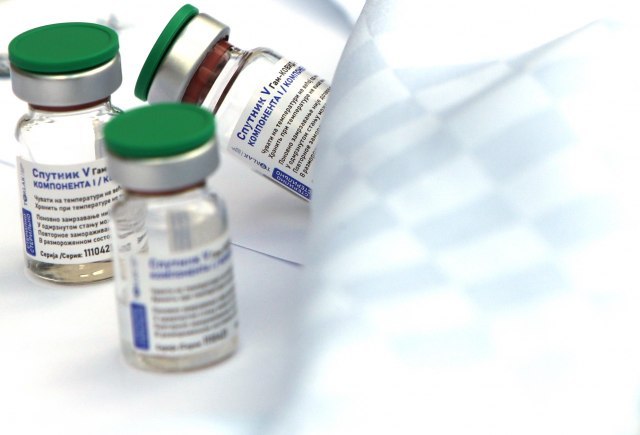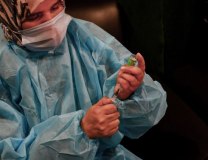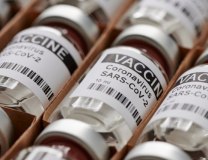Preliminary research results on vaccines published!
Belgrade – Which vaccine keeps you away from the hospital the best?
Source: B92
According to the first results of the ongoing research, reported by "Blic", the risk for those revaccinated ending up in hospital three weeks after receiving the dose due to Covid 19 is 50 times lower than in those still waiting to get vaccinated.
The possibility of getting pneumonia is up to 15 times less in those vaccinated than in those who got sick and did not get any vaccine. Not a single patient who received the Pfizer or AstraZeneca vaccine was admitted to the hospital.
The research focused on what extent of vaccinated citizens have got sick in relation to the general population, i.e., unvaccinated. The research included the disease and the clinical picture of vaccinated and unvaccinated citizens, the frequency of pneumonia, and the number of patients hospitalized. In a nutshell, how the vaccination, but also each vaccine separately, performed the job.
The research was conducted in Kragujevac, but due to the number of citizens covered, it can be easily considered representative at the national level.
The data was obtained from the Kragujevac Health Center, in charge of registration of all vaccinated and sick people in this city. The research covered the timespan from January 1 to the end of March, with a total number of 28,630 vaccinated and over 100,000 unvaccinated patients.
We already have the preliminary, general results - 8.11 percent of the unvaccinated got ill, and 2.03 percent of the vaccinated. The number decreases with the second dose to 1.17 percent, and three weeks after the revaccination it is 0.57 percent. The efficiency three weeks after revaccination is at 92 percent. These rather promising data continue through the analysis of how many vaccinated in relation to those who did not receive the vaccine got pneumonia or had to go to the hospital.
The results show that, out of 8,272 patients who were not vaccinated (8.11 percent), 1.57 percent got pneumonia, and 1.23 percent of the total number had to go to the hospital. Pneumonia occurrence among the vaccinated is at 0.56 percent, revaccinated 0.25 percent, and three weeks after revaccination 0.11 percent. In real life: pneumonia is three times less likely to occur with just one dose, after the revaccination the risk is six times lower, and three weeks after revaccination it is 15 times lower than in unvaccinated.
What was the number of those unvaccinated, vaccinated, revaccinated, and citizens who fell ill three weeks after the vaccine who had to go to the hospital?
Out of those unvaccinated patients, 1.23 percent had to go to the hospital. The percentage of those vaccinated who were hospitalized stands at 0.16 percent, revaccinated 0.06, and three weeks after revaccination only 0.02 percent. Precisely: out of 28,630 vaccinated, six citizens who got sick three weeks after the revaccination had to go to the hospital.
Mr. Dejan Baskic, the head of the research, a professor at the Faculty of Medicine, and a specialist in microbiology said for "Blic" that the first results of the research show that there is no more doubt – get yourself vaccinated.
"The vaccine minimizes the number of patients in general and those hospitalized, and the clinical picture is not so heavy. Did anyone get sick? Yes, but we should take into account what the clinical picture was. We are not only looking at the number of those who got sick, but also how many patients had to go to the hospital, and the information obtained, irrefutably testifies to a lighter picture of those vaccinated. Therefore, do not hesitate to get vaccinated, go for it", explains Professor Baskic.
The least number of patients was vaccinated with Pfizer
The research also provided data for each vaccine used in Serbia.
The difference between vaccinated and unvaccinated is dramatic. When it comes to the relationship between vaccines, although some differences in the disease were noted - it turned out that there is no drastic difference in the clinical picture.
The lowest number of patients among the vaccinated is among citizens who received the Pfizer vaccine. In total, from those vaccinated, the number of those infected with Covid is as follows; 2.3 percent of those who got AstraZeneca, 2.2 percent of those who got the Chinese vaccine, 1.8 percent of those who got the Russian vaccine, and 1.1 percent of those vaccinated with the Pfizer vaccine. Pneumonia was developed in 0.7 of those who received Chinese, the same values, 0.3 percent, have been vaccinated with Russian and AstraZeneca, 0.1 percent with Fizer. 0.2 percent of citizens who got Chinese, 0.1 Russian, and no patients who got the Pfizer or AstraZeneca were admitted to the hospital.
As Professor Baskic said, the Chinese vaccine has shown to develop protection more slowly, the Russian and AstraZeneca develop it at the same speed, while Pfizer's is practically the fastest.
"The most important thing is that all vaccines work," Professor Baskic said.











